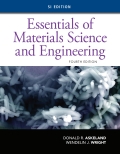
Essentials of Materials Science and Engineering, SI Edition
4th Edition
ISBN: 9781337672078
Author: ASKELAND, Donald R., WRIGHT, Wendelin J.
Publisher: Cengage Learning
expand_more
expand_more
format_list_bulleted
Question
Chapter 1, Problem 1.4P
Interpretation Introduction
Interpretation:
The difference between materials science and material engineering should be explained.
Concept Introduction:
In material science and engineering, the properties of the materials are enhanced and new materials are manufactured. The structure, composition and properties of other materials help to achieve this process.
Expert Solution & Answer
Trending nowThis is a popular solution!

Students have asked these similar questions
Water flows in a 2-ft-wide rectangular channel at a rate of 10 ft³/s. If the water depth downstream of a hydraulic jump is 2.5 ft,
determine (a) the water depth upstream of the jump, (b) the upstream and (c) downstream Froude numbers, and (d) the head loss
across the jump.
(a) y₁ = i
(b) Fr₁ = i
(c) Fr₂ = i
(d) h₁ =
ft
ft
A hydraulic jump at the base of a spillway of a dam is such that the depths upstream and downstream of the jump are 0.8 and 3.2 m,
respectively (see the Video). If the spillway is 12 m wide, what is the flowrate over the spillway?
Q= i
m³/s
(Manning equation) Water flows in a rectangular channel of width b at a depth of b/2. Determine the diameter of a circular channel (in
terms of b) that carries the same flowrate when it is half-full. Both channels have the same Manning coefficient, n, and slope.
b
Chapter 1 Solutions
Essentials of Materials Science and Engineering, SI Edition
Ch. 1 - Prob. 1.1PCh. 1 - Prob. 1.2PCh. 1 - Prob. 1.3PCh. 1 - Prob. 1.4PCh. 1 - Prob. 1.5PCh. 1 - Prob. 1.6PCh. 1 - Prob. 1.7PCh. 1 - Prob. 1.8PCh. 1 - Prob. 1.9PCh. 1 - Prob. 1.10P
Ch. 1 - Prob. 1.11PCh. 1 - Prob. 1.12PCh. 1 - Prob. 1.13PCh. 1 - Prob. 1.14PCh. 1 - Prob. 1.15PCh. 1 - Prob. 1.16PCh. 1 - Prob. 1.17PCh. 1 - Prob. 1.18PCh. 1 - Prob. 1.19PCh. 1 - Prob. 1.20PCh. 1 - Prob. 1.21PCh. 1 - Prob. 1.22PCh. 1 - Prob. 1.23PCh. 1 - Prob. 1.24PCh. 1 - Prob. 1.25PCh. 1 - Prob. 1.26PCh. 1 - Prob. 1.27PCh. 1 - Prob. 1.28PCh. 1 - Prob. 1.29PCh. 1 - Prob. 1.30PCh. 1 - Prob. 1.31PCh. 1 - Prob. 1.32PCh. 1 - Prob. 1.33PCh. 1 - Prob. 1.34PCh. 1 - Prob. 1.35P
Knowledge Booster
Similar questions
- (Manning equation) A weedy irrigation canal of trapezoidal cross section is to carry 20 m³/s when built on a slope of 0.60 m/km. If the sides are at a 45° angle and the bottom is 8 m wide, determine the width of the waterline at the free surface. i marrow_forwardWater flows in a 1.2-m-diameter finished concrete pipe so that it is completely full and the pressure is constant all along the pipe. If the slope is So = 0.0073, (a) determine the flowrate by using open-channel flow methods. Compare this result with (b) that obtained using the pipe flow methods of Chapter 8 (Use Colebrook formula, Table 8.1, Table 10.1 and assume that Re > 10º). (a) Q = i (b) Q = i m³/s m³/sarrow_forwardEXAMPLE 7.2 Consider the two equally-likely signals s₁ (t) and s2(t) that are transmitted, over an AWGN channel with the noise power spectral density of No/2, to represent bits 1 and 0, where we have: S1(t)=-S2(t)=√√2 exp(-2t)u(t) The receiver makes its decision solely based on observation of the received signal over a restricted interval of interest. Determine the average bit error rate in terms of Q-function, assuming the interval is [0,3]. Contrast numerically with the performance of an optimum receiver that observes. all the received signal, i.e., the interval of interest is (-∞, ∞).arrow_forward
- 1) Compute the voltages at each receiver branch (Vo ad V₁ see block diagram next page) for each of the possible transmitted signals: Transmitted signals are generated as shown below: Binary wave in unipolar form (a) With basis functions: Inverter 41(t) Product modulator Product modulator 42(t) BFSK + signal + Si(t) P1(t)= √Eb = cos (2лfit+0₁) $2(t) 42(t)= √Eb 层 cos (2лf2t+ t+02) Generating signals: 2E Si(t) cos (2лfit+0₁), bit=0 Ть SBFSK (t) 2E |$2(t)= cos (2лf2t+02), bit=1arrow_forwardFind the disruptive voltage and visual corona voltage for 3-phase line consisting of 2.5 cm diameter conductor spaced equilateral triangular formation of 4 m. The following data can be assumed, temperature 25°c, pressure 73 cm of mercury, surface factor 0.84, irregularity factor 0.72.arrow_forwardA 3-phase, 4-wire distributor supplies a balanced voltage of 400/230 V to a load consisting of 8 A at p.f. 0-7 lagging for R-phase, 10 A at p.f. 0-8 leading for Y phase and 12 A at unity p.f. for B phase. The resistance of each line conductor is 0.4 2. The reactance of neutral is 0.2 2. Calculate the neutral current, the suppl voltage for R phase and draw the phasor diagram. The phase sequence is RYB. VR Phasor diagramarrow_forward
- The three line leads of a 400/230 V, 3-phase, 4-wire supply are designated as R, Y and B respectively. The fourth wire or neutral wire is designated as N. The phase sequence is RYB. Compute the currents in the four wire when the following loads are connected to this supply: From R to N: 25 kW, unity power facto. From Y to N: 20 kVA, 0-7 lag. From B to N: 30 kVA, 0-6 lead.arrow_forwardcan you answer both plss, i will give u a likearrow_forward2) Is the following set of basis functions orthogonal? 41(t) = √== cos (2Ãfet), 0 ≤1≤T₁ P2(t)= - \ con(A). 2 VTS sin (2лfet), 0arrow_forwardPick up the correct answer It must be accurate 2. the minimum phase-neutral voltage at which corona occurs is A. Visual critical voltage B. Receiving voltage C. String voltage D. Critical disruptive voltage. 3. If the length of a transmission line increases, its inductance is A. Increases B. Decreases C. Constant 4. Photo cells are connected in parallel in order to A. Increase voltage rating D. None of them B. Increase current rating C. Increase life cells. D. All of the them 6. Best diversity factor will be at: B. More D. diversity factor >1 than sending voltage A. diversity factor <1 B. diversity factor = 1 C. diversity factor = zero 7. When the voltage regulation is positive, then receiving voltage is A. Less C. Equal D. None of the them 8. Fill factor of solar cell using the data: Pmax= 10 w, Voc= 5 V, Isc= 1 A A.5 9. The string efficiency can be reduced by using: B. 2 C. 1 D. 10 A. Guard ring B. Equal insulator voltage C. less cross arm D. None of them 10. If the spacing between…arrow_forward*1-4. The hollow core panel is made from plain stone concrete. Determine the dead weight of the panel. The holes each have a diameter of 100 mm. 200 mm 300 mm 300 mm 300 mm 300 mm 300 mm Prob. 1-4 300 mm 4 marrow_forwardI need help with this problem and an step by step explanation of the solution from the image described below. (Introduction to Signals and Systems)arrow_forwardarrow_back_iosSEE MORE QUESTIONSarrow_forward_ios
Recommended textbooks for you
 MATLAB: An Introduction with ApplicationsEngineeringISBN:9781119256830Author:Amos GilatPublisher:John Wiley & Sons Inc
MATLAB: An Introduction with ApplicationsEngineeringISBN:9781119256830Author:Amos GilatPublisher:John Wiley & Sons Inc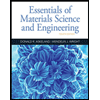 Essentials Of Materials Science And EngineeringEngineeringISBN:9781337385497Author:WRIGHT, Wendelin J.Publisher:Cengage,
Essentials Of Materials Science And EngineeringEngineeringISBN:9781337385497Author:WRIGHT, Wendelin J.Publisher:Cengage, Industrial Motor ControlEngineeringISBN:9781133691808Author:Stephen HermanPublisher:Cengage Learning
Industrial Motor ControlEngineeringISBN:9781133691808Author:Stephen HermanPublisher:Cengage Learning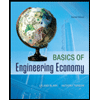 Basics Of Engineering EconomyEngineeringISBN:9780073376356Author:Leland Blank, Anthony TarquinPublisher:MCGRAW-HILL HIGHER EDUCATION
Basics Of Engineering EconomyEngineeringISBN:9780073376356Author:Leland Blank, Anthony TarquinPublisher:MCGRAW-HILL HIGHER EDUCATION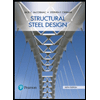 Structural Steel Design (6th Edition)EngineeringISBN:9780134589657Author:Jack C. McCormac, Stephen F. CsernakPublisher:PEARSON
Structural Steel Design (6th Edition)EngineeringISBN:9780134589657Author:Jack C. McCormac, Stephen F. CsernakPublisher:PEARSON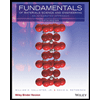 Fundamentals of Materials Science and Engineering...EngineeringISBN:9781119175483Author:William D. Callister Jr., David G. RethwischPublisher:WILEY
Fundamentals of Materials Science and Engineering...EngineeringISBN:9781119175483Author:William D. Callister Jr., David G. RethwischPublisher:WILEY

MATLAB: An Introduction with Applications
Engineering
ISBN:9781119256830
Author:Amos Gilat
Publisher:John Wiley & Sons Inc

Essentials Of Materials Science And Engineering
Engineering
ISBN:9781337385497
Author:WRIGHT, Wendelin J.
Publisher:Cengage,

Industrial Motor Control
Engineering
ISBN:9781133691808
Author:Stephen Herman
Publisher:Cengage Learning

Basics Of Engineering Economy
Engineering
ISBN:9780073376356
Author:Leland Blank, Anthony Tarquin
Publisher:MCGRAW-HILL HIGHER EDUCATION

Structural Steel Design (6th Edition)
Engineering
ISBN:9780134589657
Author:Jack C. McCormac, Stephen F. Csernak
Publisher:PEARSON

Fundamentals of Materials Science and Engineering...
Engineering
ISBN:9781119175483
Author:William D. Callister Jr., David G. Rethwisch
Publisher:WILEY